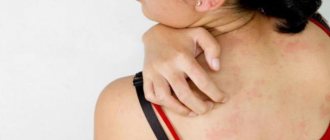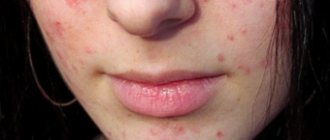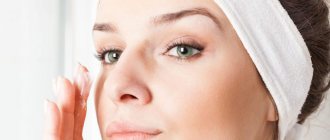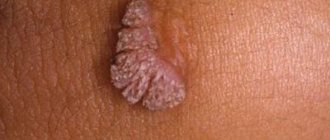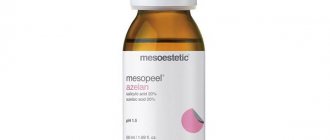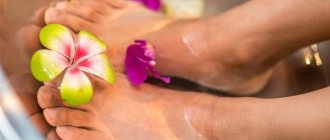Home » Face
Category: Face
The relief that comes from scratching an occasional itch is unbeatable. But what if you feel itchy from time to time? And what's worse, if the constant itching results in a lifelong scar? Although it is completely normal to feel itching from time to time, when it lasts longer than usual, it becomes a cause for concern. In this article, we have listed some home remedies to get rid of itchy skin.
- What is itching?
- What causes itchy skin?
- Signs and symptoms of itchy skin
- 18 home remedies to get rid of itchy skin
- How to treat itching at home?
- How to prevent itchy skin?
- When to visit a doctor?
- Is it possible to be allergic to water?
- Can dry skin cause itching?
What causes itchy skin?
Common causes of itchy skin are:
- Dry skin or xerosis
- Skin irritation or rash
- Internal diseases such as liver disease or kidney failure
- Nervous system disorders such as multiple sclerosis, diabetes, or a pinched nerve
- Allergic reaction to wool and chemicals in cosmetics or even soap
- Reaction to antibiotics, antifungals, or narcotics
- Pregnancy
- Elderly age
- Environmental factors such as air conditioning, too much washing or bathing
Treatment of skin itching and irritation
The most effective treatment for itchy skin is diagnosis and treatment of the underlying disease, disorder, or condition causing the itching. General therapy includes the use of sedatives and antihistamines, hyposensitizing agents (calcium preparations, sodium thiosulfate), mast cell membrane stabilizers (ketotifen), enterosorbents.
Treatment of skin itching and irritation is carried out using physiotherapeutic and balneological methods. External therapy is widely used, although the effect of most local drugs is very short-lived. Usually, powders, ointments, alcohol and aqueous solutions, pastes, and “talkers” are prescribed. The following have antipruritic effects: glucocorticosteroids, solutions of anesthesin, diphenhydramine, water with table or apple cider vinegar, infusion of chamomile flowers.
How to relieve facial skin irritation? It is necessary to moisturize your facial skin, use hypoallergenic pharmaceutical cosmetics and thermal water. In case of itching of any origin, provoking factors should be eliminated: do not contact with irritating substances, avoid dryness and degreasing of the skin.
Related services: Consultation with a dermatologist Dermatovenereology
Signs and symptoms of itchy skin
You may experience itching in certain parts of your body, such as your arms or legs, or all over your body. This sensation is accompanied by other noticeable changes, such as:
- Redness and spots
- Lumps or blisters
- Dry and flaky skin
- Scaly skin
Itchy skin can occur over a long period of time and even interfere with your daily activities. Thus, it is necessary to treat it before it turns into a rash. If you are among those who suffer from itchy skin, you can try the following remedies to help solve your problem.
How to get rid of itching due to allergies
To get rid of itching due to allergies, you need to:
- stop contact with the allergen;
- try to reduce the concentration of the irritant (for example, make a cool hand bath after washing if you are allergic to washing powder);
- apply a gel with antihistamine components (Fenistil, Dimetinden) or hormonal components (Lokoid, Sinaflan);
- take tablets that reduce the severity of allergies: Cetrin, Claritin, Tavegil.
In case of food and drug allergies, the doctor may recommend taking enterosorbents that accelerate cleansing of the body - Activated carbon, Enterosgel.
If itching of allergic origin bothers you for a long time, then these methods are not enough. Patients need to take a course of drugs that normalize the reactions of the immune system (Ketotifen). Sometimes immunomodulators (Galavit) are needed, as well as drugs that reduce the threshold of excitability of skin receptors (Nifedipine).
How to treat itching at home?
Baking soda bath
You will need
- 1 cup baking soda
- Bath water
What should you do
- Add a cup of baking soda to your bath water and let it dissolve.
- Soak your skin in water for 15-20 minutes and then pat dry.
- You can do this once a day.
Why does it work
Baking soda is one of the best remedies to relieve itching. It has anti-inflammatory properties that help reduce inflammation and itching on your skin. The alkaline nature of baking soda also acts as a natural acid neutralizer, which can help soothe your skin.
Apple vinegar
You will need
- 2 cups apple cider vinegar
- Bath water
What should you do
- Add two cups of apple cider vinegar to your bath water and soak a towel in it for 15-20 minutes.
To relieve localized itching, you can dilute a tablespoon of apple cider vinegar with half a glass of water and apply it to the affected areas using a cotton ball.
How often should you do this
You should do this once a day for best results.
Why does it work
Apple cider vinegar contains certain enzymes that can help restore the pH balance of your skin. Its anti-inflammatory properties reduce symptoms of itching, while its antimicrobial properties prevent infections.
Oatmeal bath
You will need
- 2 cups oatmeal
- Bath water
What should you do
- Add two cups of oatmeal to your bath water.
- Soak in the bath for 15-20 minutes. Gently rub some oatmeal onto the itchy areas.
- You should do this once a day.
Why does it work
Oatmeal has a soothing effect that can help relieve itchy skin. These effects are due to its antioxidant and anti-inflammatory properties.
Coconut oil
You will need
- Coconut oil (as needed)
What should you do
- After soaking in a warm bath, pat yourself dry and apply coconut oil to the affected areas.
- If you feel itching everywhere, it is a good idea to massage the oil all over your body.
- Do this daily.
Why does it work
Coconut oil contains medium chain fatty acids, which have antihistamine and anti-inflammatory properties that help soothe itching. The oil is also highly moisturizing and can help combat one of the main causes of itching – dry skin.
Nim
You will need
- Neem leaves (as required)
- Bath water
What should you do
- Place a bunch of neem leaves in boiling hot water.
- Let them sit for 10-15 minutes.
- Once the water is warm, go and take a bath with it.
- You can do this every day.
Why does it work
Neem, also known as Indian lilac, is another medicinal herb that can combat itchy skin. It is a strong antimicrobial and anti-inflammatory agent, which allows it to combat itching.
Sesame oil
You will need
- Sesame oil (as needed)
What should you do
- Take some sesame oil and apply it to the affected areas after showering.
- You can also massage this oil all over your body.
- Do this daily or every other day.
Why does it work
Sesame oil is a rich source of antioxidants and is therefore great for your skin. It is also known for its anti-inflammatory properties, which can be quite helpful in soothing the redness and itching of your skin.
Peppermint candy
You will need
- Handful of mint leaves
- 500 ml water
- Cotton balls
What should you do
- Place a handful of mint leaves in 500ml water and bring it to the boil in a saucepan.
- Cover the solution with a lid and let it cool.
- Once the solution has cooled, strain it and soak a cotton ball in it.
- Apply it to all affected areas.
- You can do this 1-2 times a day for quick relief from itchy skin.
Why does it work
One of the main components present in mint leaves is menthol. Menthol has anti-inflammatory and analgesic properties that work wonders in relieving itchy and inflamed skin.
Lemon
You will need
- 1 – 2 lemons
- Cotton pads
What should you do
- Squeeze the juice from one or two lemons.
- Dip a cotton pad in lemon extract and apply it to the itchy areas. Let it dry.
- Rinse with water.
- If you have sensitive skin, dilute lemon juice with water before applying.
- You must do this twice a day for effective results.
Why does it work
Lemons are rich in citric and acetic acids, which have anti-inflammatory, anti-irritant and astringent properties that help in treating itchy and inflamed skin.
Fenugreek seeds
You will need
- 1-2 cups fenugreek seeds
What should you do
- Soak fenugreek seeds in water for an hour.
- Grind the soaked fenugreek seeds with a little water to make a thick paste.
- Apply the paste all over your body. For localized itching, apply it only to the affected areas.
- Let the paste dry, after which it can be washed off with water.
- You should do this at least three times a week.
Why does it work
Fenugreek seeds have anti-inflammatory properties that can reduce itching and inflammation to a great extent. They also exhibit excellent antimicrobial activity, which helps soothe rashes and eliminate skin infections that can cause itchy skin.
Almond oil
You will need
- Almond oil (as needed)
What should you do
- Take some almond oil and apply it all over your body (or itchy areas) after showering.
- You can do this daily.
Why does it work
Almond oil moisturizes the skin well and also helps reduce the symptoms of itchy skin. This is because it has anti-inflammatory and antipruritic properties that can speed up the healing of itchy and inflamed skin.
Honey
You will need
- Honey (as needed)
What should you do
- Take some honey and heat it slightly.
- Apply warm honey directly to itchy areas.
- Leave it on for 10-15 minutes and then rinse off with water.
- You should do this 1 – 2 times a day.
Why does it work
Honey has natural moisturizing properties that prevent the skin from drying out. This in turn helps reduce itching. Honey also has anti-inflammatory and antimicrobial properties that help reduce symptoms of itching and prevent skin infections.
Cold compress
You will need
- Ice pack
What should you do
- Take an ice pack and apply it to the affected area for a few minutes.
- Repeat on all itchy areas of the skin.
How often should you do this
- You can do this daily to get quick relief from itchy skin.
Why does it work
- The cold temperature and anti-inflammatory properties of the ice pack help soothe itchy skin.
Aloe vera
You will need
- 2 tablespoons aloe vera gel
What should you do
- Take two tablespoons of aloe vera gel and apply it directly to all itchy areas.
- Leave it on for 15-20 minutes, after which you can rinse with water.
- You should do this once a day.
Why does it work
Aloe vera is widely used for its natural healing and soothing properties. This is because the plant has anti-inflammatory and antimicrobial properties. Aloe vera is also an excellent source of vitamin E and hence can help prevent your skin from becoming dry and itchy.
Olive oil
You will need
- Olive oil (as needed)
What should you do
- Take some olive oil in your hands and apply it to all affected areas immediately after showering.
- You should do this once a day to lock the moisture into your skin.
Why does it work
Olive oil is an excellent source of antioxidants due to the polyphenols it contains. These polyphenols have anti-inflammatory properties that can reduce itching. The oil is also one of the best moisturizing oils and hence can prevent dry and itchy skin.
Essential oils
Peppermint oil
You will need
- 2 – 3 drops of peppermint oil
- 1 tablespoon of any carrier oil (coconut or olive)
What should you do
- Mix peppermint oil with any carrier oil.
- Apply it to the affected areas.
- Do this 1-2 times a day.
Why does it work
Peppermint oil contains menthol, which is well known for its anti-inflammatory and analgesic properties, making it suitable for relieving itchy and inflamed skin.
Tea tree oil
You will need
- 2-3 drops tea tree oil
- 1 tablespoon of any carrier oil (olive or coconut)
What should you do
- Add three drops of tea tree oil to a tablespoon of any carrier oil and mix well.
- Apply this mixture directly to the itchy skin and let it absorb.
- You should do this at least once a day.
Why does it work
Tea tree oil is a widely used essential oil to treat various skin conditions. The natural antiseptic, antimicrobial and anti-inflammatory properties of tea tree oil make it suitable for treating acne, warts, boils and even itchy skin and rashes.
Garlic
You will need
- 2-3 cloves of garlic
- 1/2 cup olive oil
What should you do
- Pass the garlic cloves through a meat grinder and heat in a saucepan with half a glass of olive oil. Don't overheat.
- Let the oil and garlic steep overnight.
- The next morning, apply this oil to all affected areas.
- Leave it on for 20-30 minutes and then rinse with water.
- You should do this once a day.
Why does it work
Garlic, due to its powerful anti-inflammatory and antioxidant properties, is used to treat a variety of skin and health conditions, including itching. Topical application of garlic relieves itchy skin. Additionally, the presence of olive oil ensures that your skin remains hydrated, preventing further drying and itching.
Vitamins
In addition to topical treatment, you should also consider taking certain vitamins that are known to relieve symptoms of itching. Vitamins A, C and E can help both treat and prevent itchy skin.
Vitamin A keeps your skin healthy and nourished by stimulating the production and growth of skin cells. Vitamin C is responsible for the production of collagen, a protein necessary for skin healing. Vitamins C and E also have antioxidant properties that can protect your skin from free radical damage.
Therefore, it is important to increase your intake of these vitamins to help treat itching. You can either take them after consulting your doctor or increase your intake of foods rich in these vitamins such as eggs, cheese, milk, citrus fruits, leafy green vegetables and nuts. You can also supplement with a high-quality probiotic as many times as your skin concerns are directly related to your gut health.
The above remedies will undoubtedly help relieve itchy skin. If you develop a rash or skin condition that causes itching, there are some tips you can follow to avoid it.
Antihistamines
Histamine plays one of the main roles in the functioning of the body. It is this that provokes the occurrence of an allergic reaction. There are four categories of histamine receptors located in the human body. The first type is located in the blood vessels, brain and intestinal smooth muscles, the second - in the stomach tissues, cartilage and cardiac tissues, the third - in the central nervous system and the fourth - in the spleen, intestinal tissues, and bone marrow.
There are first and second generation antihistamines. The first group has a rapid effect, blocking the first type of receptors. But it negatively affects the condition of organs and systems, causes drowsiness and impaired coordination. In addition, the effect of such funds is short-term. The second group produces long-lasting results and does not cause sedation. Such drugs only negatively affect the functioning of the heart. There are also new generation products, the level of negative impact of which is reduced to a minimum.
The doctor determines which group of drugs should be used. For your information, we provide you with a list of the best allergy remedies.
| Name | Generation | Main component | Release form | pros |
| Suprastin | First | Chloropyramine | Tablets and solution for injection. | Effective for acute allergic reactions. Allowed for children under one year of age. Low cost. |
| Tavegil | First | Clemastine | Pills. | Allowed for one year old children. Rarely causes drowsiness. |
| Diphenhydramine | First | Diphenhydramine | Tablets and solution for injection. | Allowed for one year old children. |
| Fenistil | Second | Dimetinden | Drops, gel. | Can be used by children from one month of age. Eliminates itching, burns, irritation. |
| Loratadine | Second | Loratadine | Pills. | Does not cause drowsiness, has a mild antiallergic effect. |
| Claridol | Second | Loratadine | Tablets, syrup. | The effect of the product begins after 8 hours and lasts for at least a day. The drug does not cause side effects. Allowed for children from two years of age. |
| LauraHexal | Second | Loratadine | Pills. | A high-quality drug, approved for children from two years of age. Does not cause side effects. |
| Tsetrin | Third | Cetirizine | Tablets and syrup. | Tablets are allowed for children from six years of age, syrup - from two years of age. The drug lasts for more than a day and is not addictive. The effect lasts longer than three days, even after stopping the drug. |
| Suprastinex | Third | Levocetirizine | Tablets and drops. | In the form of drops, it is allowed for children from two years of age. This is a powerful drug that has anti-allergic and anti-inflammatory effects. Eliminates signs of urticaria, conjunctivitis, rhinitis, allergic atopic dermatitis. |
| Telfast | Third | Fexofenadine | Pills. | Improved form of Suprastinex (acts faster). |
| Erius | Desloratadine | Tablets and syrup. | In the form of syrup, it is allowed for one-year-old children. The effect of the drug begins within half an hour. Does not cause drowsiness. Valid for more than a day. |
To reduce the negative impact of drugs, it is recommended to use enterosorbents, the action of which is aimed at removing toxins from the body. Pay attention to Enterosgel, which is available in the form of a paste for internal use.
How to prevent itchy skin?
The following measures may help prevent itching:
- Wear loose cotton clothing.
- Use a humidifier to keep your environment moist and prevent dry, itchy skin.
- Keep your nails trimmed.
- Shower daily.
- Keep your stress levels under control.
- Limit or avoid caffeine and alcohol.
- Drink plenty of water
- Keep your skin hydrated - use a good moisturizer.
- Check for allergic reactions to certain foods such as milk, eggs, peanuts, fish, mushrooms, etc.
- Replace potentially chemically harmful household products such as: laundry detergent/softener, dryer sheets, shampoo, soap, lotion with more natural and fragrance-free products.
In some cases, the itching can become intense and last a long time. If you notice any of the following symptoms, you should contact your dermatologist immediately.
Can dry skin cause itching?
YES. In fact, dry skin is one of the main causes of itchy skin. So keep your skin well hydrated to overcome this.
Itchy skin can lead to serious complications such as infections and scarring if left unattended for too long. So, as soon as you notice any unusual itching sensation, treat it immediately using the natural remedies we have listed here. If you have any doubts or questions, please leave them in the comment section below.
